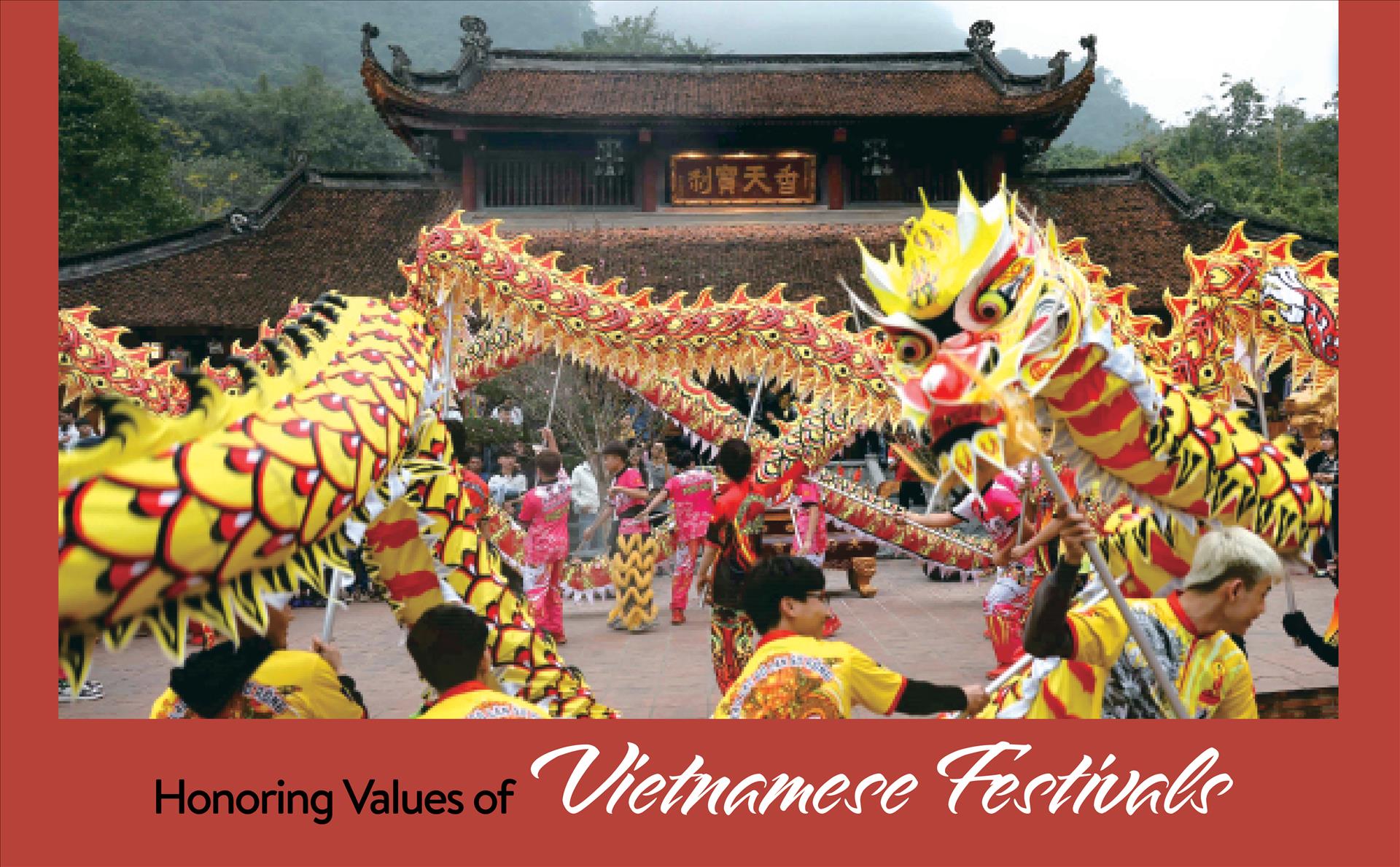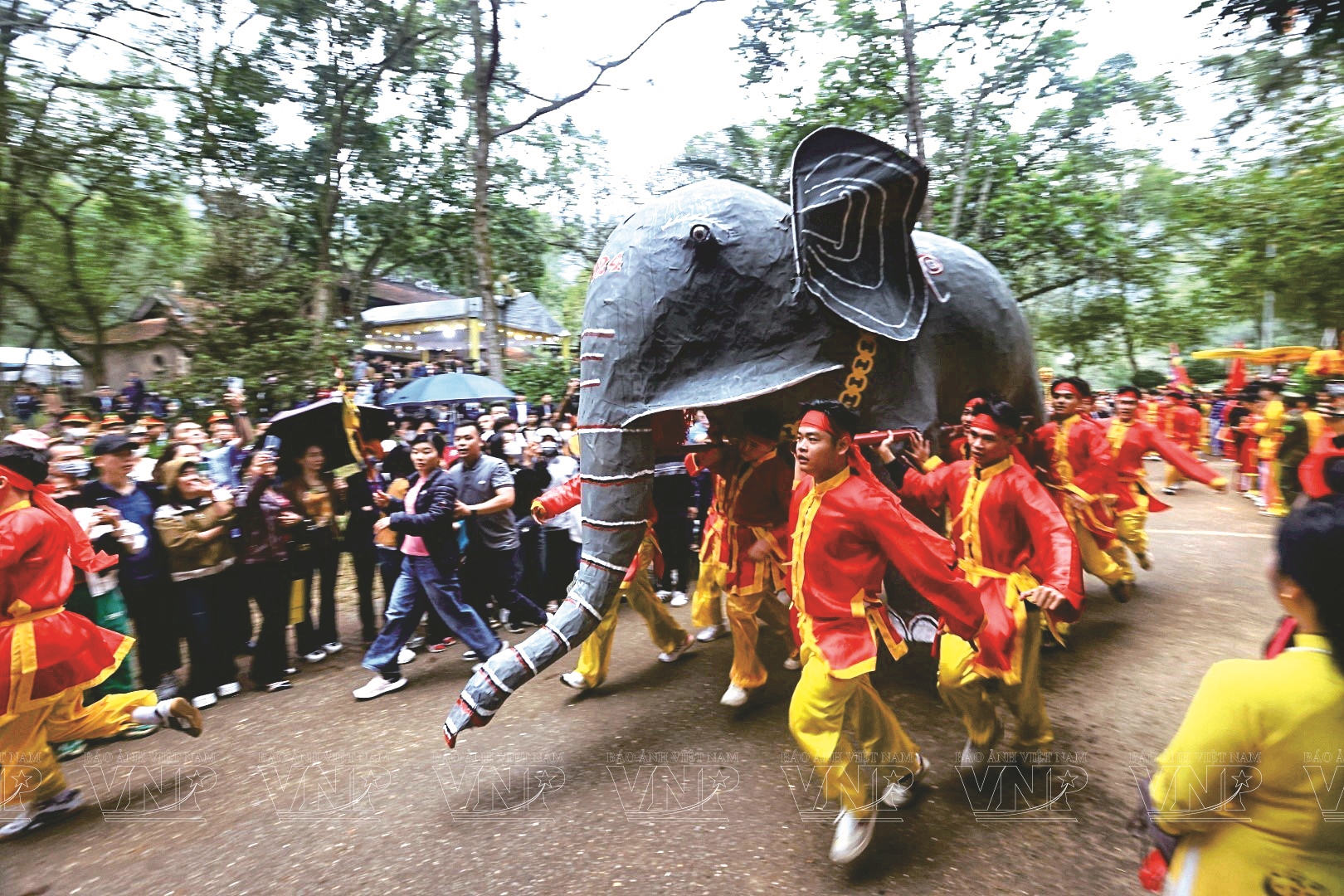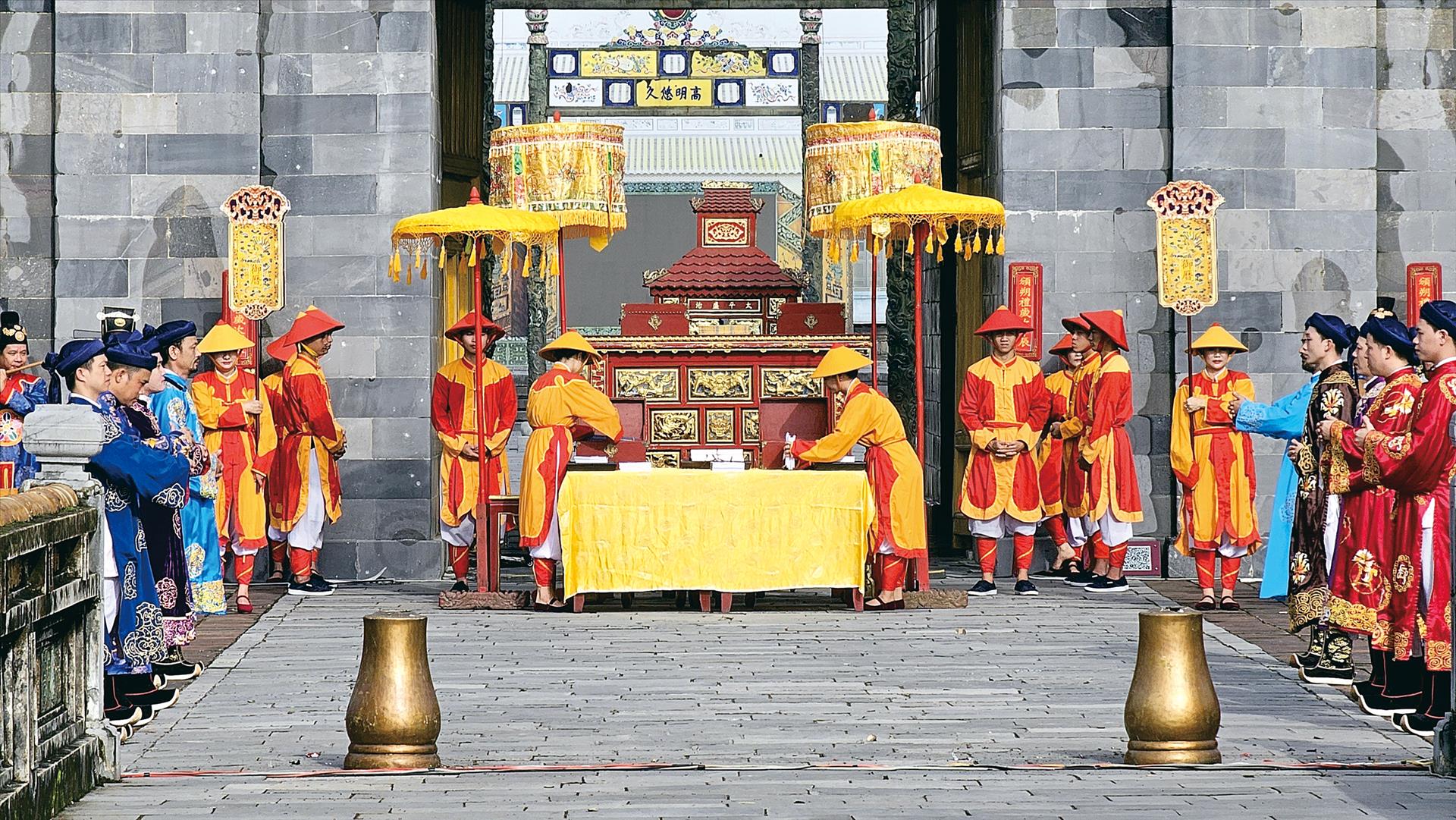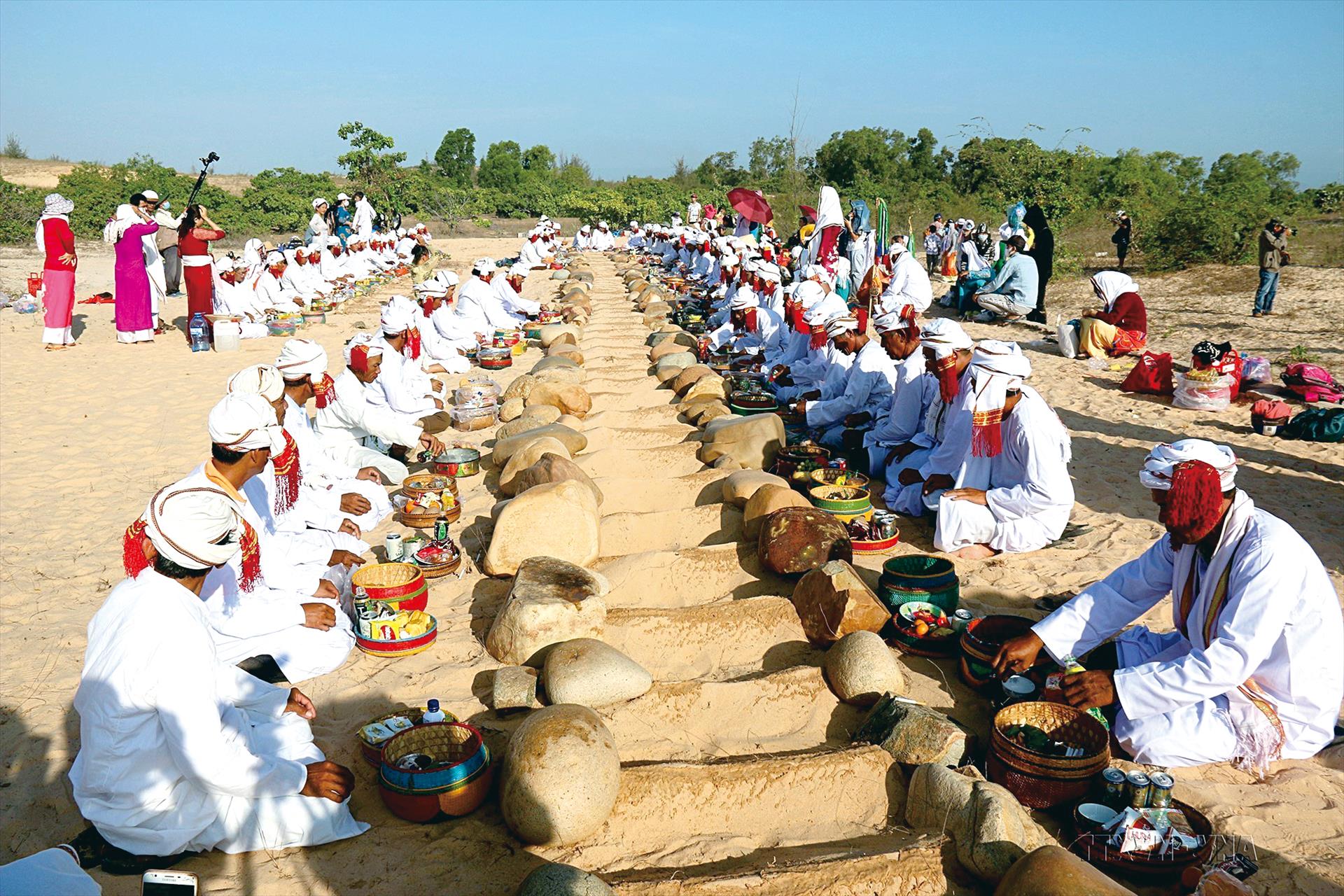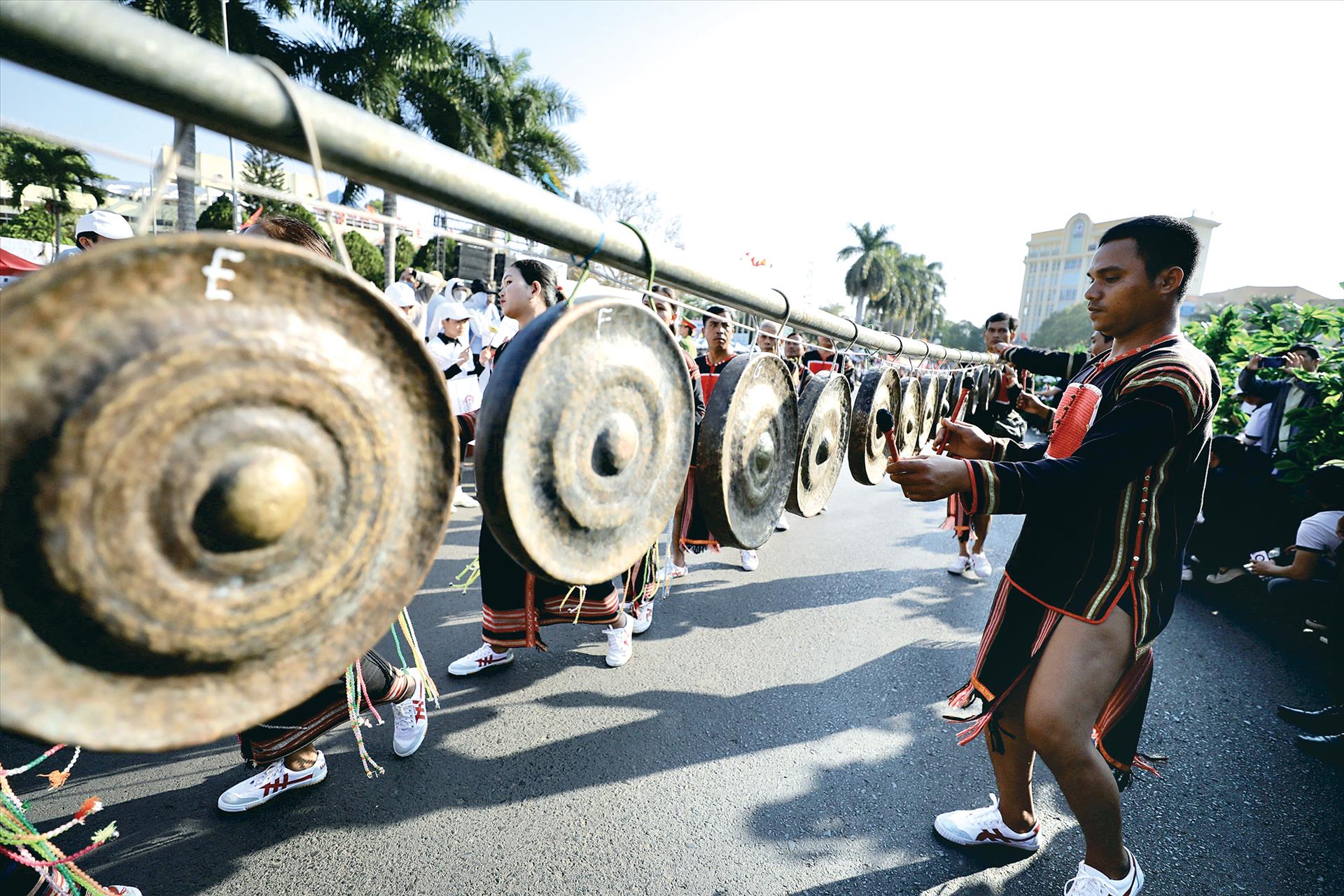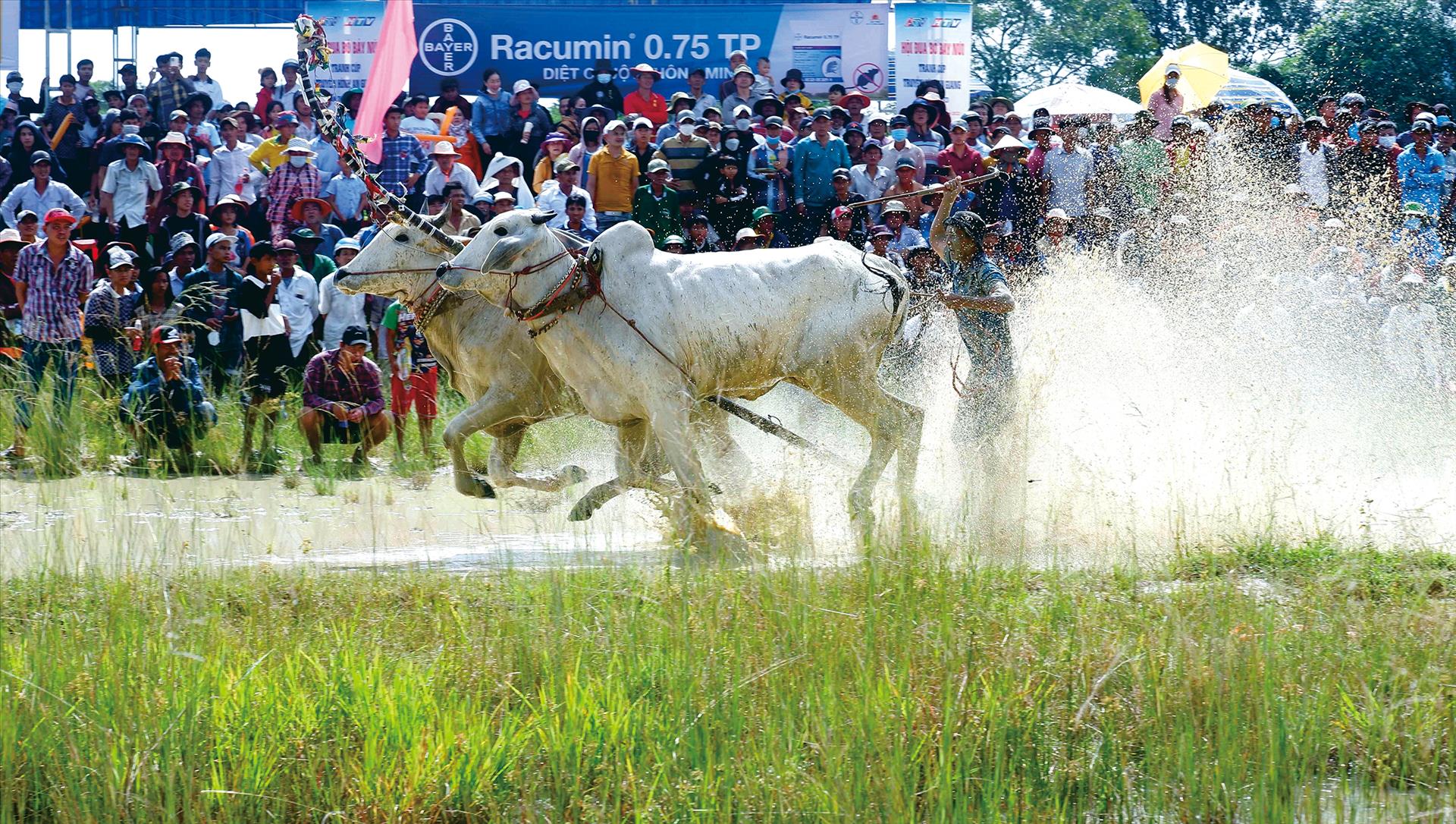Honoring Values of Vietnamese Festivals
In the anticipated festive atmosphere of spring, traditional festivals are organized in localities of Vietnam. People from all walks of life eagerly come together to attend the festivals, paying homage to those who made great contributions to their homeland, and fervently wishing for a new year filled with favorable weather and abundant harvests. This is the timeless cultural beauty of Vietnamese festivals that deserves to be celebrated and honored.
Among the 15 intangible cultural heritages of Vietnam recognized by UNESCO, the majority are associated with traditional festivals in Vietnam.
The Hung Kings Temple Festival has become a spiritual gathering point for every Vietnamese citizen. Every year, millions of Vietnamese pilgrims journey to the sacred Nghia Linh Mountain in Phu Tho Province to honor the ancestral contributions to building and defending the nation. Worshiping the Hung kings is not only a spiritual practice to pray for national peace, favorable weather, and prosperity, but it also holds profound significance in fostering unity, love, and mutual support among the Vietnamese community.
In order to honor the cultural values and significance of festivals, UNESCO also recognizes the Cultural Space of Gongs in the Central Highlands; the Giong Festival in Soc Son, Hanoi; and the tug-of-war ritual and game often present during traditional holidays, temple festivals, or communal events concentrated in the midlands, Red River Delta, North Central Coast, and some mountainous areas in the north.
In addition to preserving and promoting the cultural values of traditional festivals, many localities have organized festivals infused with the essence of modern life, with the participation of other countries from around the world.
Thua Thien - Hue Province has notably succeeded in constructing and effectively organizing the Hue Festival since 2000.This event has left a significant mark on a series of outstanding cultural and artistic activities, promoting the values of the heritage and culture of the ancient capital. The Hue Festival has contributed to the strong promotion of the local image.
For many years, Da Nang has also effectively promoted the value of events and festivals, with the International Fireworks Festival standing out prominently. This city has been recognized twice by the World Travel Awards as Asia's Leading Festival and Event Destination in 2016 and 2022, highlighting its status as a premier location for hosting exceptional events and festivals.
In Quang Nam, Hoi An's Mid-Autumn Festival was honored with the title of National Intangible Cultural Heritage in 2023. This recognition further emphasizes the values that the Mid-Autumn Festival brings to the lives of the local people, providing an opportunity for the preservation and promotion of traditional cultural values. This is especially crucial as Hoi An is currently in the process of compiling documentation in the field of folk arts and crafts to participate in UNESCO's Creative Cities Network.
There are many renowned festivals across the country such as the Lim Festival in Bac Ninh, the Trang An Festival in Ninh Binh, the Buckwheat Flower Festival in Ha Giang, the Khmer Chol Chnam Thmay Festival in Soc Trang, and the Bay Nui Cow Racing Festival in An Giang. Each locality is continuously striving to enhance the awareness of its community and culture in order to preserve and promote the immense and unique values of Vietnamese festivals, creating widespread dissemination within both domestic and international communities.
Story: VNP
Photos: VNA
Translated by Nguyen Tuoi
Designed by Trang Nhung
